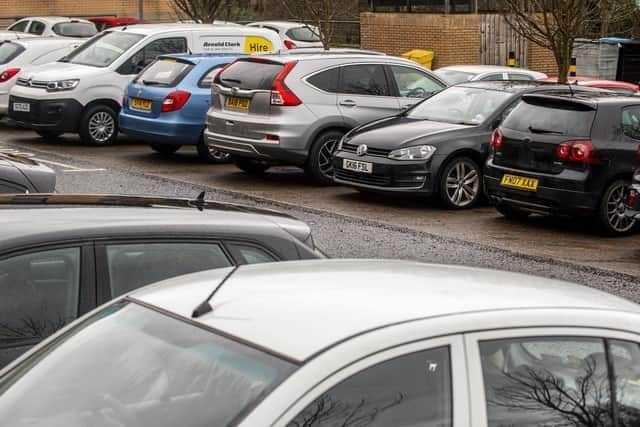Bid to put brakes on workplace parking levy rejected by councillors
and live on Freeview channel 276
A bid by Edinburgh’s transport chief to put the brakes on plans to introduce workplace parking charges in the city has been outvoted.
Councillor Scott Arthur had called for a pause to the scheme so the “predictable negative consequences” on low-paid workers could be further investigated.
Advertisement
Hide AdAdvertisement
Hide AdThe authority has been mulling over proposals for a workplace parking levy (WPL) since last year and will now launch the first consultation to get the public’s views on it.


SNP councillor Danny Aston accused the transport convener of “cherry picking” facts and “ignoring, in large part, the benefits that a WPL can bring”.
Under the plans, employees could be charged as much as £650 a year to park at work if businesses choose to pass the cost on to their employers.
Officials say a levy has the potential to bring in over £12 million a year to reinvest in public transport and active travel, whilst helping to achieve the council’s ambitions to reduce congestion and cut car journeys by 30 per cent by 2030.
Advertisement
Hide AdAdvertisement
Hide AdKey details about what it would look like, including the charge, boundary size and which workers, for example NHS staff, would be exempt, will be decided following the consultation if the scheme is progressed.
Councillors have previously said the charge should be “no less than the current annual cost for public transport,” a report said, adding the cheapest annual bus pass in Edinburgh was £650.
Nottingham, which already has a WPL in place, charges drivers £522 per year and brought in over £25m in its first three years.
Cllr Arthur said he is concerned about the impact on “low paid workers who do use a car” as well as part-time workers and shift workers. He added that parking being displaced to residential streets around workplaces was also a problem that would need to be addressed.
Advertisement
Hide AdAdvertisement
Hide AdThe transport convener said the council needed to come up with a “firmer plan” before putting it to the public.
A report presented to the Transport and Environment Committee on Thursday (September 14) said reducing traffic “disproportionately benefits those living in deprived communities, because they are both more likely to experience higher levels of local air pollution from vehicles and are more susceptible to the effects of that pollution”.
It added: “It is also likely that the majority of people who drive to work and park in dedicated workplace car parks will be from middle and higher income households.”
Cllr Arthur said “predictable and non-trivial negative impacts of a WPL” had not been adequately addressed yet. “Such a scheme must not worsen inequality between residents in our capital,” he added.
Advertisement
Hide AdAdvertisement
Hide AdCouncillor Kayleigh O’Neill, Greens, urged the committee to not get “pulled back by scaremongering”.
She said: “Those most hard hit by the cost of living crisis are more likely to rely on public transport. Running cars are expensive and we want more money to go into public transport. Most people have a travel charge to get to work in the form of a bus pass anyway, if anything I think we’re levelling the playing field a little bit.”
Paul Lawrence, Edinburgh Council’s director of place, said the goal to reduce journeys made by car in the city by 30 per cent would be hard to achieve without “demand management measures” such as a WPL.
Comment Guidelines
National World encourages reader discussion on our stories. User feedback, insights and back-and-forth exchanges add a rich layer of context to reporting. Please review our Community Guidelines before commenting.